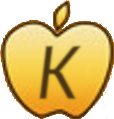I am amazed at the speed of change in the industry.
Having started to use agentic coding on several open source projects I was appalled at the divergence of different names for instruction files.
Just over a week ago, I started to plan a project to try and at least standarise the open source projects, picking ChatGPT / OpenAI Codex AGENTS.md as the best option of a generic name (and avoid creating new standards).
I didn't get to do much until this weekend, and spent the time creating the Agent Rules (https://agent-rules.org/) microsite and raising feature requests with various open source projects.
My approach is fairly light-weight, based on projects like Editor Config, Semantic Versioning, and Conventional Commits).
This drew out a few comments that, following down the rabbit hole, it looks like the approach from Codex has already gained traction (within the last week) and will become the standard.
A lot of the discussion was on X, so I asked Grok to summarise the timeline and at how fast this has moved.
Continue reading AGENTS.md standardisation for agentic coding systems(5 min read)
